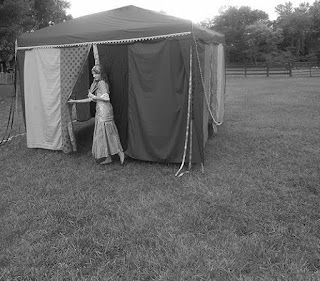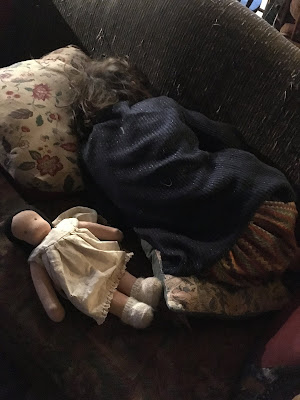Not-So-Wonderful Catholic Book (1996)
Book Review: Catholic is Wonderful! How to Make the Most of It by Mitch Finley, (Resurrection Press, Mineola, NY
Published in Lay Witness, January/February 1996
This text is the author's copy and may vary slightly from the publisher's copy.
This text is the author's copy and may vary slightly from the publisher's copy.
I once wrote an article about the unity and diversity competing in the Catholic Church, noting the variety of opinions among those united in the Catholic Church on topics such as spirituality, Operation Rescue, clothing, raising children, and so on. At first glance, this slim booklet by Mitch Finley might seem to be written in the same vein.But I would argue that there are some differences. I was trying to demonstrate that even fully orthodox Catholics can disagree about some non-essential matters, and this gives the Church Her diversity.
Finley's book, however, seems to lump dissenters and faithful Catholics gleefully together, proclaiming, "We're all Catholic -- isn't it great?" I would like to argue that some of the aspects of the Catholic Church that are truly wonderful -- such as her faithfulness to Christ's teaching on divorce, life issues, and so on -- are ignored with this treatment of Catholicism. However, that's not the point I'm going to emphasize.
The first two chapters are filled with statements that made me start talking back to the book in wrath, such as Finley's description of "progressive Catholics" as Catholics who are sincerly devout, attend Church regularly, have a vibrant faith life and "disagree with a few non-essential Church teachings." Or, "A conservative Catholic would say that you can't stay Catholic unless you obey the church's official prohibition of artificial contraceptives and never disagree with anything the pope says." I beg to differ. First of all, no one ever said you can't disagree with the pope (and your bishops). You can disagree with them all you like. But you still have to respect and obey them.
However, after the first two chapters, the book actually gets pretty good. Finley writes on how to "stay Catholic" in your relationships, your workplace, and your parish. He even makes a strong argument for keeping (or bringing back) crucifixes, statues, and benediction of the Blessed Sacrament. In one passage, he argues forcefully against substituting a "risen Christ" or a bare cross for a crucifix in Catholic churches:
People don't have a hard time understanding or accepting the joy in their lives. With that, they need no help. People find it difficult to accept suffering and anguish, and with that, they need some help. That is why Catholics are perplexed, sometimes angry, when a new parish church does not have a crucifix prominently displayed. An image of the risen Christ is theologically legitimate in itself, but to substitute it for a crucifix is spiritually redundant to the point of crass insensitivity to the lives of ordinary people.
Finley's arguments for devotions, especially devotions to the saints and for Eucharistic Adoration are worth reading. This book could be pretty useful to anyone whose church is undergoing "renovation," especially if your pastor might be influenced by a book whose forward is written by Andrew Greeley.
Returning to the objectionable first two chapters, I want to note a point Finley makes in defining who is Catholic. He says he defines any baptized Catholic who agrees with the Creeds (Apostles' and Nicene). He cites Canon Law which says "if you were validly baptized and have never formally abandoned Catholicism ('apostatized') then you are a Catholic."
I hate to say it, but I think he's right. Part of me wants to say, "But you can't call people who blatantly ignore and undermine the Church's teachings Catholic!" Yes, I certainly don't want to call them Catholic. But they still are.
The Church, ever conscious of herself as the Ark of Salvation, outside of which no man can be sure of his salvation, is very slow to pitch even flagrant sinners off the side of the boat. Some people may cause an awful lot of agitation. Some by their preaching, endanger their souls and the souls of others. But Mother Church, who tries to be as patient as her spouse, Christ Himself, seldom uses her privilege of excommunication. The definition in Canon Law is an example of these generous boundaries.
Some of us, like ticked-off older kids, wish that Mom wouldn't be like this. Boy, we'd like to see a few people get their heads cracked. But, honestly, I have to tell myself that these folks are really still in the Church, regardless of me.
In our day and age, the word "Catholic," like the word "Christian," as used by some Protestants, has come to have a subjective meaning outside of its traditional definition. I've heard my separated brethren use phrases like, "Well, they go to church, but they're not really Christians." "She calls herself Christian, but she really isn't." It's tempting to use the word "Catholic" in the same way -- as a subjective term of human judgment.
But really and truly, the ultimate judge of who is truly Catholic is God, not us. Thank God, because God is way more generous than I would be in determining who belongs in the Church and who gets the boot.
Perhaps that's why our dissenting brothers and sisters like Mitch Finley find us conservative Catholics so unlovable. Because sometimes we are. We can't set ourselves up as the Church and excommunicate this person and that person. Our task is to love the sinner, and I suppose that must mean speaking of them charitably -- not ignoring their deviations, but seeing those sins for what they really are -- sins of our brothers and sisters in Christ. They need our prayers. Our heartfelt, anguished prayers.
copyright Regina Doman, 1999. This document is available for republishing only after the author's permission has been obtained. Click the top button for an email link to the author.


Comments